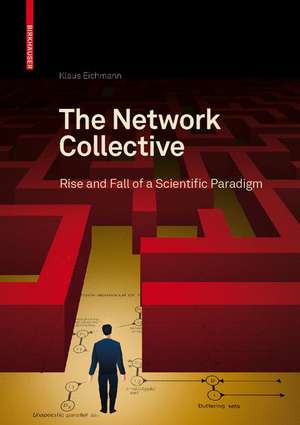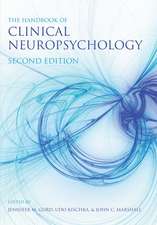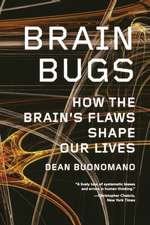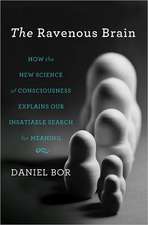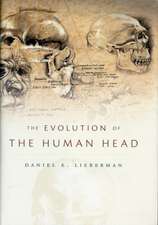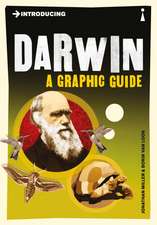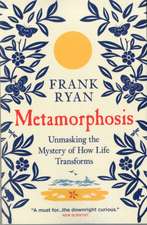The Network Collective: Rise and Fall of a Scientific Paradigm
Autor Klaus Eichmannen Limba Engleză Hardback – 18 sep 2008
The author, himself a participant in the network vagary, begins with a description of the leading theoretical concepts on fact finding in science. This is followed by a historical account of the rise and fall of the network paradigm, complemented by personal interviews with some of the prominent protagonists. By comparing the network paradigm to other, more lasting concepts in life science, the author develops a general perspective on how solid knowledge is derived from error-prone scientific methodology, namely by exposure of scientific notions to the scrutiny of reality.
Preț: 1223.55 lei
Preț vechi: 1492.14 lei
-18% Nou
Puncte Express: 1835
Preț estimativ în valută:
234.12€ • 244.46$ • 193.33£
234.12€ • 244.46$ • 193.33£
Carte tipărită la comandă
Livrare economică 15-29 aprilie
Preluare comenzi: 021 569.72.76
Specificații
ISBN-13: 9783764383725
ISBN-10: 3764383720
Pagini: 310
Ilustrații: VII, 274 p.
Dimensiuni: 155 x 235 x 20 mm
Greutate: 0.61 kg
Ediția:2008
Editura: Birkhäuser Basel
Colecția Birkhäuser
Locul publicării:Basel, Switzerland
ISBN-10: 3764383720
Pagini: 310
Ilustrații: VII, 274 p.
Dimensiuni: 155 x 235 x 20 mm
Greutate: 0.61 kg
Ediția:2008
Editura: Birkhäuser Basel
Colecția Birkhäuser
Locul publicării:Basel, Switzerland
Public țintă
ResearchCuprins
Autobiographical note.- Autobiographical note.- Scientific Knowledge, Delusive or Deductive.- Realism, constructivism, and the naiveté of the experimental scientist.- Beyond underdeterminism: Popper, Kuhn, et al..- The anthropology of science: Ludwik Fleck et al..- The science wars.- Origins, Rise, and Fall of the Network Paradigm.- The immune system, pre-network paradigms.- The necessity for an interactive theory of immunity.- Proto-ideas of the network theory: antibody self-regulation, idiotypy, the brain analogy, and cybernetics.- The idiotypic network theory.- The T cell receptor puzzle.- Suppression turned idiotypic.- Network mannerism.- Post-network immunology: Idiotypic network continues at the bedside.- Hindsight.- Science between Fact and Fiction.- The fictional nature of scientific notions.- Fiction turned fact: The case of antibodies.- The enticing network: Fiction forever.- Logic and laws in life science.
Textul de pe ultima copertă
The network paradigm dominated immunological research from the early 1970s to the late 1980s. The originator, Niels Jerne, hypothesized that the vast diversity of antibodies in each individual forms a network of mutual "idiotypic" recognition, thus regulating the immune system. In context of emerging concepts of systems biology such as cybernetics and autopoesis, the "Eigenbehavior" of the immune system fascinated an entire generation of young immunologists. But fascination led to experimental errors and overinterpretation, eventually magnifying the immune system from a mere infection-fighting device to a substrate of personality and individuality. As a result, what initially appeared as an exciting new perspective of the immune system is now viewed as a scientific vagary, and is largely abandoned.
The author, himself a participant in the network vagary, begins with a description of the leading theoretical concepts on fact finding in science. This is followed by a historical account of the rise and fall of the network paradigm, complemented by personal interviews with some of the prominent protagonists. By comparing the network paradigm to other, more lasting concepts in life science, the author develops a general perspective on how solid knowledge is derived from error-prone scientific methodology, namely by exposure of scientific notions to the scrutiny of reality.
The author, himself a participant in the network vagary, begins with a description of the leading theoretical concepts on fact finding in science. This is followed by a historical account of the rise and fall of the network paradigm, complemented by personal interviews with some of the prominent protagonists. By comparing the network paradigm to other, more lasting concepts in life science, the author develops a general perspective on how solid knowledge is derived from error-prone scientific methodology, namely by exposure of scientific notions to the scrutiny of reality.
Caracteristici
First-hand account of the raise and fall of a scientific paradigm Shows how scientific fiction turns fact Highlights the origin of scientific hype Includes interviews with prominent scientists
